Publications
Articles, publications, books, tools and multimedia features from the U.S. Institute of Peace provide the latest news, analysis, research findings, practitioner guides and reports, all related to the conflict zones and issues that are at the center of the Institute’s work to prevent and reduce violent conflict.
Question And Answer
Amid a Changing Global Order, NATO Looks East
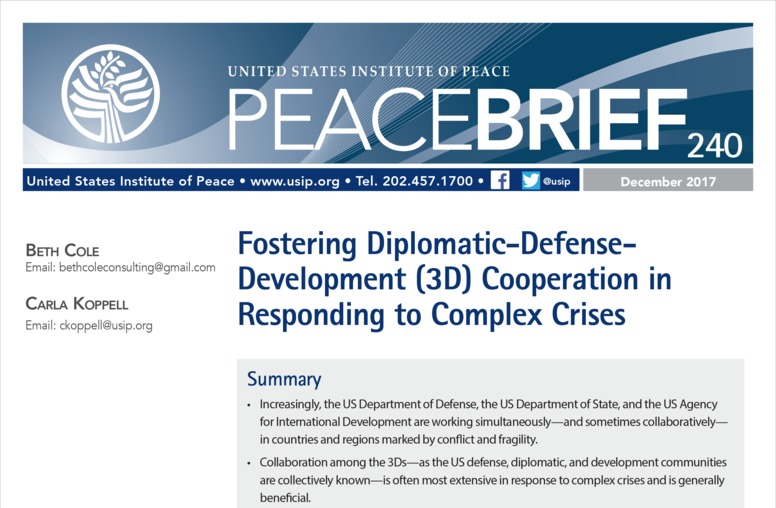
Fostering Diplomatic-Defense-Development (3D) Cooperation in Responding to Complex Crises
The US diplomatic, defense, and development communities (known as the “3Ds”) increasingly find themselves working together to tackle complex crises. This collaboration has already proved its worth, but how can it be made even more effective? A recent USIP research project sought to...
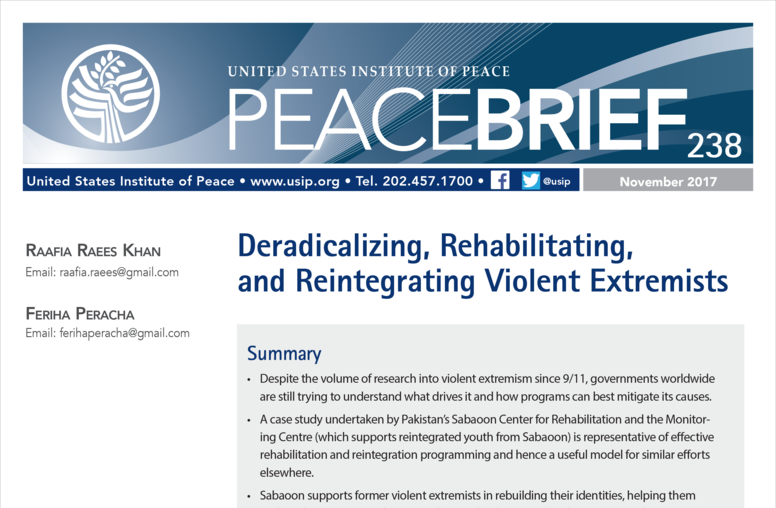
Deradicalizing, Rehabilitating, and Reintegrating Violent Extremists
Despite the increasing body of research on violent extremism, questions remain about why individuals join such groups and why recidivism remains common among those who have undergone deradicalization
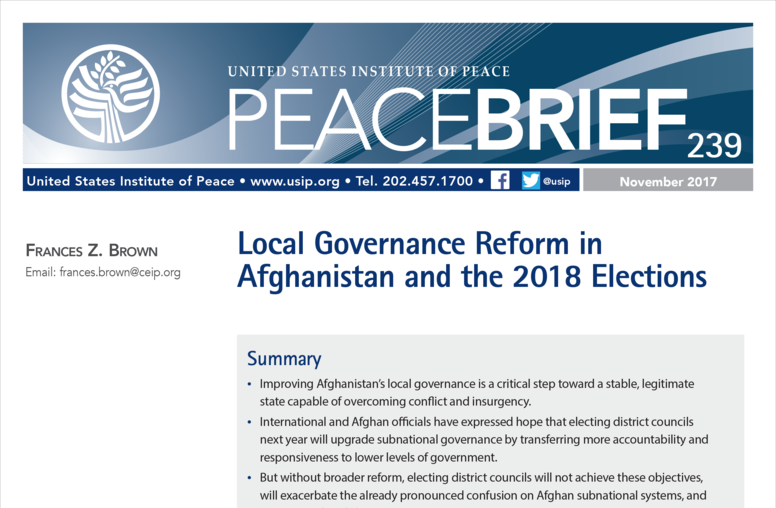
Local Governance Reform in Afghanistan and the 2018 Elections
This summer, Afghanistan’s Independent Electoral Commission announced that its long-delayed elections to launch district councils will be held in July 2018. The international community has formally welcomed the statement, noting that district councils are both long overdue and a manifestation...
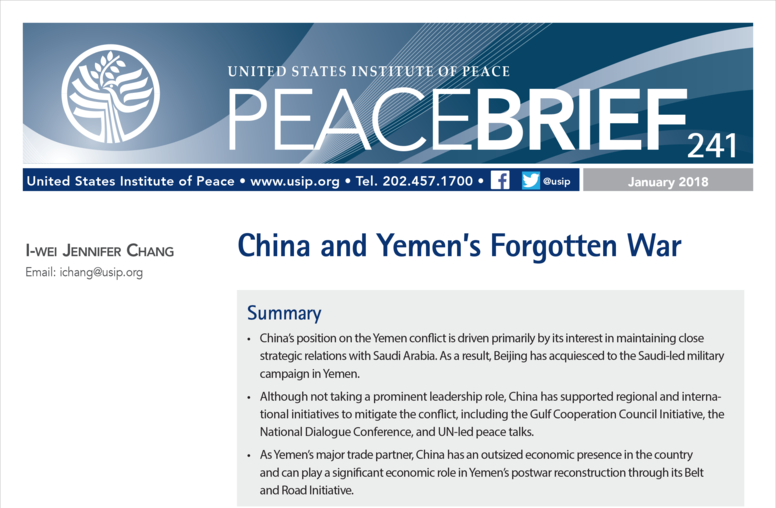
China and Yemen’s Forgotten War
Yemen is facing an acute humanitarian crisis after nearly three years of civil war, with more than 10,000 deaths and three-quarters of the country’s population in dire need of humanitarian assistance. Although eschewing a leadership role, China has supported regional and international efforts to mitigate the...
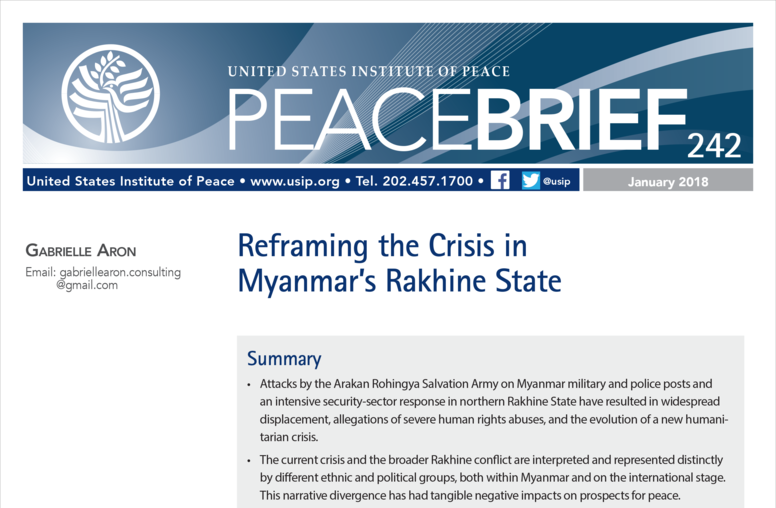
Reframing the Crisis in Myanmar’s Rakhine State
In the aftermath of attacks by the Arakan Rohingya Salvation Army and subsequent military clearance operations, two competing narratives have emerged. One frames the attacks as a critical threat to national security and the majority cultural-religious status quo. The second focuses on the human cost...
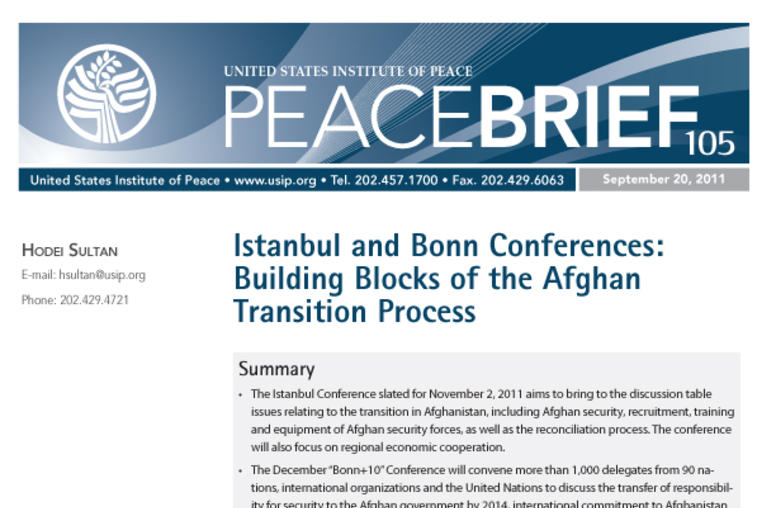
Istanbul and Bonn Conferences: Building Blocks of the Afghan Transition Process
This brief highlights two upcoming major conferences that will play a critical role in the future of Afghanistan. Hodei Sultan, the author, is a program specialist for Afghanistan and Pakistan programs with USIP’s Center for Conflict Management.
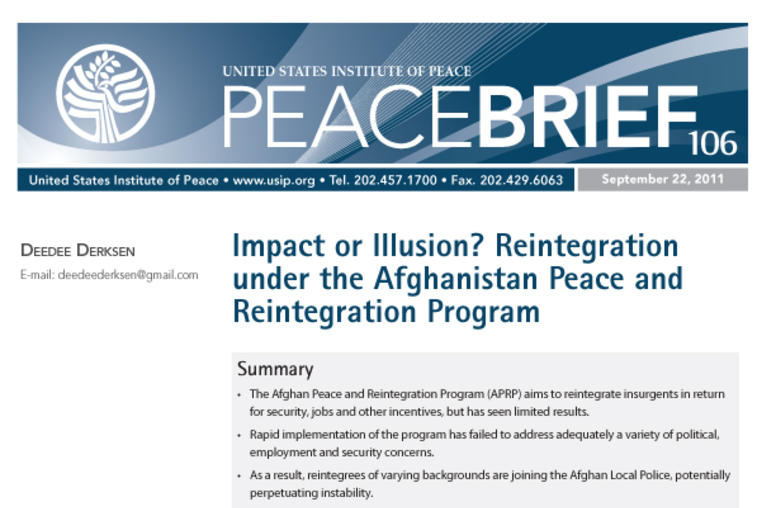
Impact or Illusion? Reintegration under the Afghanistan Peace and Reintegration Program
The Afghan Peace and Reintegration Program (APRP) aims to reintegrate insurgents in return for security, jobs and other incentives, but has seen limited results.
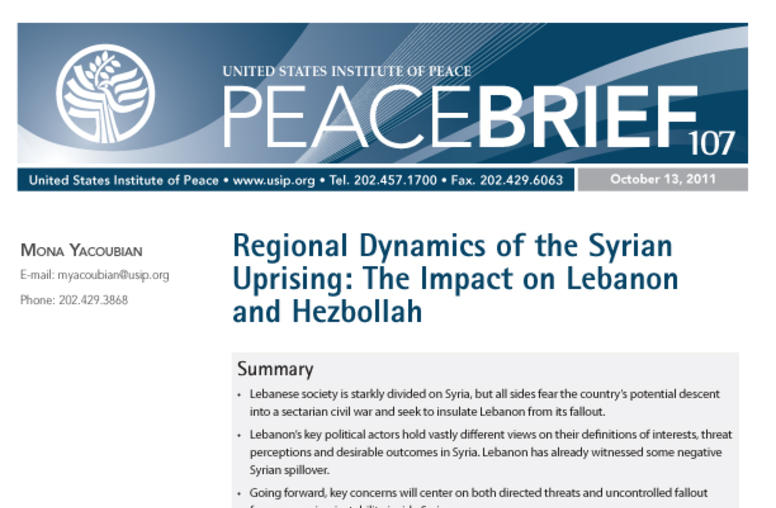
Regional Dynamics of the Syrian Uprising: The Impact on Lebanon and Hezbollah
This Peace Brief is part of a series examining the regional dimensions of Syria’s popular uprising. The Institute invited leading experts from the U.S. and across the Middle East to identify key vectors of influence Syria’s neighbors are bringing to bear on the conflict; to forecast how the on-going conflict in Syria will affect the delicate and volatile regional balance of power; and to examine how the Syrian opposition and the Syria regime are factoring in regional and cross-border dynamics...
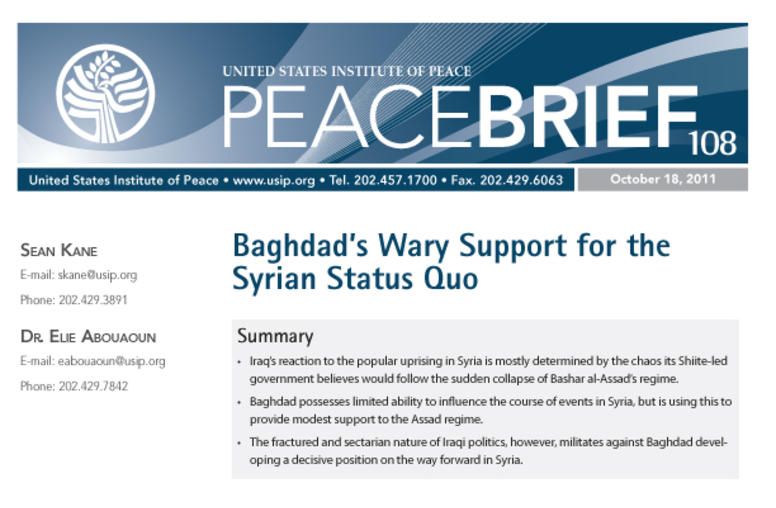
Baghdad’s Wary Support for the Syrian Status Quo
Iraq’s reaction to the popular uprising in Syria is mostly determined by the chaos its Shiite-led government believes would follow the sudden collapse of Bashar al-Assad’s regime. This Peace Brief outlines how Baghdad possesses limited ability to influence the course of events in Syria, but uses this to provide modest support to the Assad regime. This Peace Brief is part of a series examining the regional dimensions of Syria’s popular uprising.
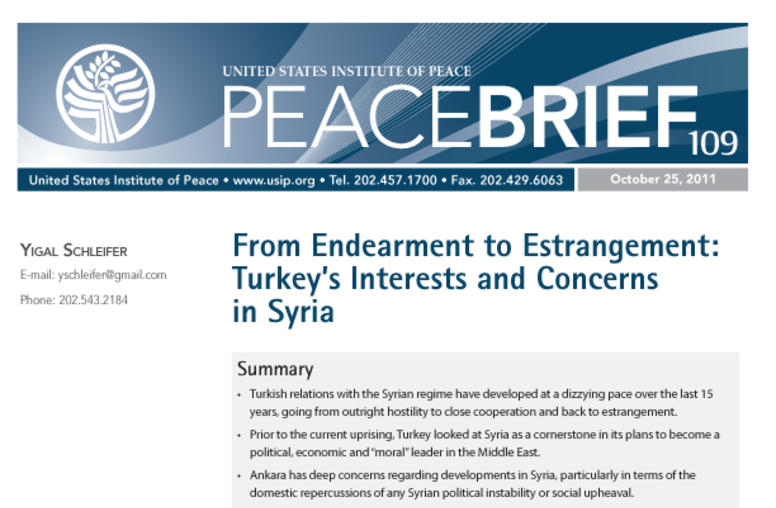
From Endearment to Estrangement: Turkey’s Interests and Concerns in Syria
This brief is part of a series examining the regional dimensions of Syria’s popular uprising. The Institute invited leading experts from the U.S. and the Middle East to identify key vectors of influence Syria’s neighbors are bringing to bear on the conflict, to forecast how the situation there will affect the regional balance of power and to examine how the opposition and the Syria regime are responding to these regional dynamics. This study on Turkey was written by Yigal Schleifer, a Washing...